|
 Secure Site
Secure Site
|
 |
Archive for April, 2012
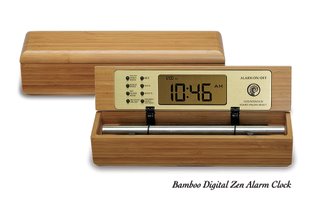 soothing chime meditation timers The Digital Zen Clock also serves as a countdown and interval timer for yoga, meditation, bodywork, etc.; and it can also be set to chime on the hour as a tool for “mindfulness.”
 soothing meditation timers and mindfulness practice tools Now & Zen Headquarter Store
1638 Pearl Street
Boulder, CO 80302
(800) 779-6383
Posted in Bamboo Chime Clocks
 Do you want an alarm clock with real, acoustic sounds - choose The Zen Clock from Now & Zen Are you and your partner at odds over your sleeping arrangements? Does one person snore in bed and the other hog the covers? Do you hate your spouses radio alarm clock?
If sleeping next to your partner is a struggle, you’re not alone. One in fourAmerican couples sleep separately, according to a study by the National Sleep Foundation. Often the problem is not intimacy, but the seemingly simple act of sharing a bed with a spouse.
The Wall Street Journal reports that while many couples have learned to compromise in other areas of their lives, they can’t find common ground on sleeping together.
Couples often have different sleeping habits and preferences — like room temperature, watching TV in the bedroom or when to turn the lights off — and experts say it takes communication and compromise to share the sack.
Buy The Zen Alarm Clock – it will transform your husbands mornings, and awakening you gradually with a series of gentle acoustic chimes Once you use a Zen Clock nothing else will do.
Boulder, Colorado—an innovative company has taken one of life’s most unpleasant experiences (being startled awake by your alarm clock early Monday morning), and transformed it into something to actually look forward to. “The Zen Alarm Clock,” uses soothing acoustic chimes that awaken users gently and gradually, making waking up a real pleasure.
Rather than an artificial recorded sound played through a speaker, the Zen Clock features an alloy chime bar similar to a wind chime. When the clock’s alarm is triggered, its chime produces a long-resonating, beautiful acoustic tone reminiscent of a temple gong. Then, as the ring tone gradually fades away, the clock remains silent until it automatically strikes again three minutes later. The frequency of the chime strikes gradually increase over ten-minutes, eventually striking every five seconds, so they are guaranteed to wake up even the heaviest sleeper. This gentle, ten-minute “progressive awakening” leaves users feeling less groggy, and even helps with dream recall.
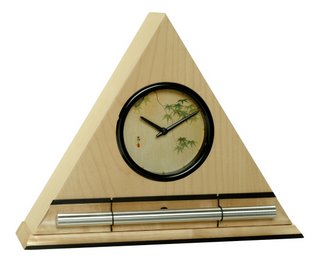 Alarm Clocks with Real Sounds - No Electronic Sounds - Boulder, CO Now & Zen – The Zen Alarm Clock Store
Alarm Clocks with Chimes – no Electronic Sounds
1638 Pearl Street
Boulder, CO 80302
(800) 779-6383
orders@now-zen.com
Posted in Bamboo Chime Clocks, sleep, Sleep Habits, Well-being, Zen Alarm Clock
 Sounder Slumber with Natural Chime Alarm Clocks There’s a growing body of evidence linking sleep deprivation to poor physical health. Now there’s a study that suggests sleeplessness can hurt your fiscal fitness too.
Researchers at Duke University have found out that sleep deprivation boosts the part of your brain that tends toward optimism,; it also leads the part of your brain that processes negative outcomes to pipe down. As the news releases noted:
Sleep-deprived individuals in the study tended to make choices that emphasized monetary gain, and were less likely to make choices that reduced loss.
Although the study examined the way people in casinos behaved, it’s worth pondering how sleeplessness could be affecting your everyday financial decisions.
It’s one thing to be a sleep-deprived new parent and pony up for the Cloud b Sleep Sheepbecause you are desperate for the baby to sleep anywhere other than your arms ( … um. Not that I speak from personal experience. Or am bitter it didn’t work).
But is it possible that the chronically sleep deprived might be more prone to false thrift because they’re focusing more on the perceived financial benefits than on the realistic and likely drawbacks? Or perhaps their fiscal discipline is napping while they’re still up. In the bookNurtureShock: New Thinking About Children, authors Po Bronson and Ashley Merryman write:
Sleep loss debilitates the body’s ability to extract glucose from the bloodstream. Without this stream of basic energy, one part of the brain suffers more than the rest — the prefrontal cortex, which is responsible for what’s called “Executive function.” Among those executive functions are the orchestration of thoughts to fulfill a goal, prediction of outcomes, and perceiving consequences of actions.
Working toward goals, thinking through consequences — those sound like two of the governing mechanisms that help people manage their spending and saving.
Perhaps somewhere Benjamin Franklin is smiling. After all he is the one who said, “Early to bed and early to rise, makes a man healthy, wealthy and wise.”
 One of the ultimate Zen like experiences is waking-up from a great slumber refreshed and energized. The right alarm clock can be the most beneficial investment for you. With our Now & Zen natural alarm clock you are awakened more gradually and thus more naturally. Now & Zen is focused on creating a naturalistic lifestyle, and our clocks are an example of our philosophy.
One of the ultimate Zen like experiences is waking-up from a great slumber refreshed and energized. Your mind and body are harmoniously one, both alert and focused. Having a refreshed mind and body are two keys to a natural and Zen lifestyle. Waking up in the morning should not be a loud and abrupt awakening, but rather it should be a peaceful positive experience. The right natural alarm clock can transition your deep and tranquil sleep into a serene start to consciousness. Imagine a long-resonating Tibetan bell-like chime waking you up to a beautiful morning experience.
adapted from sfgate.com by Lisa Schmeiser
Now & Zen – The Chime Alarm Clock Store – Downtown Boulder
1638 Pearl Street
Boulder, CO 80302
(800) 779-6383
Orders@now-zen.com
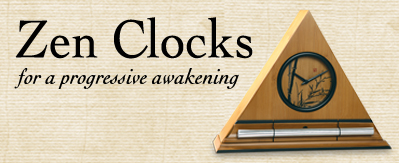 The luxurious awakening provided by the Zen Alarm Clock is part of the growing preference for things natural—natural foods, natural fibers, and now, natural acoustic sounds.
Posted in Bamboo Chime Clocks, Chime Alarm Clocks, Natural Awakening, sleep, Sleep Habits
 Meditation as a Transformation Tool - Ukiyo-e Many moons ago, a wandering Nepalese prince sat under a tree, vowing not to rise until he attained enlightenment.
After a long night of deep meditation, Siddhartha Gautama, better known as the Buddha, saw the light and declared that suffering is subjective, and can be reduced through self-awareness.
Today, 2500 years later, a growing number of American doctors and healthcare workers are teaching people who are ill how to apply Buddha’s epiphany to their lives.
adapted from abcnews.com by By Ephrat Livni
In hospitals, businesses and community centers around the country, meditation is increasingly being offered as a method of stress reduction, and to help patients better cope with the physical pain and mental strain associated with many medical conditions, including heart disease and HIV infection.
Recent research shows meditation’s soothing effects can be detected in arterial walls and in the brain. Once considered outside the mainstream, today more insurers are paying for meditation, both as a form of medication and as preventive medicine.
Learning to ‘Disidentify’
“Meditation is the act of disidentifying from inner thought flow and concentrating on calming and healing,” explains Robert Thurman, Ph.D., a professor of Indo-Tibetan Buddhist Studies at Columbia University in New York and the first American to become a Tibetan Buddhist monk. Through meditation, doctors help patients detach from their pain and anxieties and cultivate a connection between the mind and the body, he says.
 Gong Clock - Progressive, Soothing Tones to End Your Stillness Practice While there are many kinds of meditation, the mindfulness approach, used widely in hospitals around the country, focuses primarily on breathing. Practices vary, but the basic idea involves sitting comfortably, with eyes closed, spine straight and attention focused on breathing.
Practitioners aim to maintain a detached, calm awareness of their thoughts and sensations. Through mindfulness, experts say, meditators learn to pay attention to the present and cultivate clarity of mind, equanimity and wisdom.
Minor Mindfulness Miracles
All of which may sound very abstract. Unless, points out Jeff Brantley, Ph.D, Director of the Mindfulness-based Stress Reduction (MBSR) Program at the Duke Center for Integrative Medicine in Durham, N.C., you are a patient who is suffering.
“We had one patient, a 40-year-old woman with metastatic breast cancer who was enrolled in the 8-week MBSR program. At her exit interview she said that before the course began 5 minutes wouldn’t go by without her worrying about what would become of her and her young family and now, after the class, she can concentrate on other things for more than hour at a time, even days,” Brantley says, calling the results “a minor miracle.”
The Duke program is one of at least 70 such mind-body based courses modeled on the University of Massachusetts Medical School’s Stress Reduction Clinic, in Worcester, Mass., created in 1979 by Dr. Jon Kabat-Zinn. Taught mainly in hospitals around the country, mindfulness training is typically run as an 8-week-long outpatient program to complement other medical treatments.
The aim, according to a website dedicated to Mindfulness-based Stress Reduction, is to assist people in taking better care of themselves “through a gentle but rigorous daily discipline of meditation and relaxation.”
Doctors refer patients to mindfulness programs for any number of diseases and disorders, including heart disease, anxiety and panic, job or family stress, chronic pain, cancer, HIV infection, AIDS, headaches, sleep disturbances, type A behavior, high blood pressure, fatigue and skin disorders.
In keeping with the growing interest in preventative medicine, some insurance companies, such as Blue Cross/Blue Shield in Massachusetts and a number of insurers in what Thurman calls “the more enlightened states like Oregon and California,” are now paying for all or part of these programs.
Research for Coverage
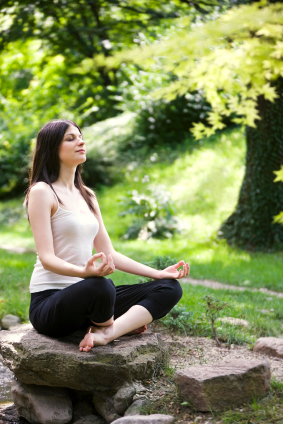 Meditation for Well-being, Choose a Soothing, Chime Timer While the National Institutes of Health says it is too soon to quantify the medical benefits of meditation, Anita Greene, spokeswoman for the Institute’s Complementary and Alternative Medicine division, concedes, “It is a therapy worthy of further scientific investigation to refute or support the health claims being made.”
In fact, in 1999, the NIH granted Maharishi University of Management in Fairfield, Iowa, $8 million during a five-year period to study the effects of meditation in African Americans with cardiovascular diseases.
Researchers at Maharishi say that relaxing and reducing stress through transcendental meditation may reduce artery blockage and the risk of heart attack and stroke, according to a study released in the March issue of the American Heart Association’s journal Stroke (see related story).
Another recent pilot study, published in the May 15 issue of NeuroReport, by Sara Lazar, Ph.D., a Harvard research fellow in psychology at Massachusetts General Hospital, in Boston, suggests meditation activates specific regions of the brain that may influence heart and breathing rates. Using a brain imaging technique known as functional magnetic resonance imaging, or fMRI, Lazar measured blood flow changes in experienced meditators.
“What we found were striking changes. There was significant decrease in blood flow and activity in specific areas of the brain,” says the study’s senior author Dr. Herbert Benson, president of the Mind/Body Medical Institute at Beth Israel Deaconess Medical Center in Boston, Mass.
The usual, fight-or-flight brain response liberates adrenalin and is stressful to the body, he explains, but during meditation the brain acts to quiet the body through concentrated breathing or word repetition, evoking a relaxation response that minimizes the harmful effects of stress.
“It does away with the whole separation of mind and body and gives further proof to insurers that [meditation] is cost effective,” he says. Ultimately, Benson predicts, medicine will be akin to a three-legged stool, leaning on pharmaceuticals, surgeries and procedures, and self-care, which includes, meditation, nutrition, exercise and health management.
A Tool for Transformation
But, Thurman points out, meditation is for more than just health benefits: It is a tool for seeking inner transformation. Meditation practices in the health field are secular, however.
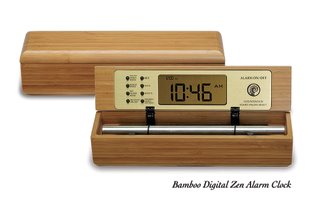 Gong Clock for Meditation and Yoga Practices “We get everyone from born-again Christians to avowed atheists. We tell people we are not trying to make anyone into anything,” Duke’s Brantley reassures. No matter what their religious persuasion, he says, patients find an increased awareness and appreciation of their lives.
Registered nurse Shirley Gilloti, a San Rafael, Calif., health educator and mindfulness training teacher agrees, “I tell people to try to bring more mindfulness to saying their rosary if that’s what they do.”
Use our unique “Zen Clock” which functions as a Yoga & Meditation Timer. It features a long-resonating acoustic chime that brings your meditation or yoga session to a gradual close, preserving the environment of stillness while also acting as an effective time signal. Our Yoga Timer & Clock can be programmed to chime at the end of the meditation or yoga session or periodically throughout the session as a kind of sonic yantra. The beauty and functionality of the Zen Clock/Timer makes it a meditation tool that can actually help you “make time” for meditation in your life. Bring yourself back to balance.
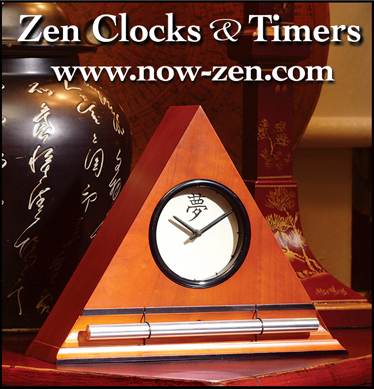 Gong Clock & Timers by Now & Zen, Inc. - Boulder, CO Now & Zen – The Gong Clock Shop
Downtown Boulder, CO
1638 Pearl Street
Boulder, CO 80302
(800) 779-6383
Orders@Now-Zen.com
Posted in Bamboo Chime Clocks, Yoga Timer, Yoga Timers by Now & Zen, Zen Alarm Clock, Zen Timepiece by Now & Zen
 Unusual Soothing Alarm Clocks by Now & Zen, Inc. - Boulder, CO
Waking up in the morning is a metaphor for life — a kind of daily microcosmic reenactment of our overall purpose for being in the world. That is, just about every religious tradition emphasizes spiritual growth. And the connection between “awakening” and spiritual growth can be found in practically all forms of spiritual teaching.
So if waking up in the morning really is a metaphor for our larger spiritual lives, this perspective might help us treat our morning ritual of getting out of bed as a kind of spiritual practice. Indeed, when approached in this way, how we wake up in the morning can make a larger difference in our lives overall.
Perhaps this is stretching the matter, but there are many people who do recognize that something as simple as waking up in the morning can be an authentic form of spiritual practice. For those who don’t have to go to work or get the kids to school, waking up naturally, whenever their body feels like it, can be a wonderful version of this practice. Waking up without an alarm, whenever your body has had enough rest, is probably the healthiest option, and the one that will leave us feeling most refreshed and ready to start the day. However, there are few of us that have this luxury, especially during the week.
 Sleep Sounder - Choose an Unusual Soothing Clock with Acoustic Chime Fortunately, for those who want to wake up right, without being startled awake by an annoying alarm or some radio DJ, there is The Zen Alarm Clock. This clock was designed to make waking up a kind of spiritual practice. The Zen Clock wakes users with a built-in 10 minute gradual progression of acoustic chimes. And this gradual form of “progressive awakening” has been thoughtfully designed to include esoteric features that are fitting for a form of spiritual practice. For example, not only is the hardwood Zen Alarm Clock beautiful to see and hear, the clock’s chime is tuned to produce the same frequencies as the tuning forks used by musical therapists in their healing work. Moreover, the Zen Clock’s pre-programmed 10 minute chime progression sequence advances according to the “golden ratio,” which reflects both the natural proportions of our own bodies and the patterns of growth used in the overall evolution of the universe. Even those who care little about such esoteric details nevertheless report that they love waking up with the gentle chimes of a Zen Alarm Clock. And as the makers of the Zen Alarm Clock hope, we may eventually come to see many of the simple details of our lives as forms of authentic spiritual practice. 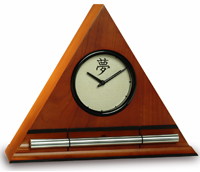 Waking up in the morning should be as pleasant as falling asleep at night. The Zen Alarm Clock's gradual, gentle awakening is transformative. Now & Zen – The Most Unusual Alarm Clock Headquarter Store
Soothing Acoustic Chime Alarm Clocks & Timers
1638 Pearl Street
Boulder, CO 80302
(800) 779-6383
Posted in Bamboo Chime Clocks, Insomnia, sleep, Sleep Habits
 Cherry Blossoms
Beyond the psychological inquiry into dreams or the self-improvement techniques of affirmations lies the ancient and sacred practice of meditation. Some form of meditation is practiced in every major world religion. Yogis, Christian mystics, Zen Buddhists, Quakers, practitioners of the Kabbalah, and Secular Humanists, all experience the benefits of meditation.
 A Moment of Stillness in Nature
The Zen Timepiece is an exquisite “accoutrement to meditation.” It can be used in a variety of ways to aid your practice and encourage you to “make time” to meditate. The first and most basic use of the Zen Timepiece in your meditation practice is as a signal of the end of your allotted meditation time.
If you want to meditate for twenty minutes, simply set our Chime countdown timer for twenty minutes and begin your meditation. When the countdown timer reaches zero and the bowl/gong is struck, you can choose to end there or continue your meditation for about three and a half minutes until the next bowl strike, or even longer. Many meditators find that a “three and a half minute warning” is a perfect interval in which to gradually conclude their longer meditations. The first strike signals the final phase of the meditation and the second strike its conclusion. The beauty of the brass bowl/gong is that it complements rather than disturbs the meditative state while acting as an effective timer. No matter how you use it, the sonic clarity of the brass bowl provides an appropriate conclusion to your stillness.
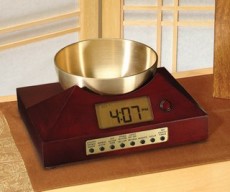 Now & Zen Headquarter Store, Boulder, CO
Now & Zen Headquarter Store, Boulder, CO
The bowl that comes with the Zen Timepiece is made from the following five metals: copper, zinc, lead, iron, and tin. It has been formed using the same forging techniques that have been used in Asia for two thousand years. Unlike hand-hammered Himalayan-style bowls, our Zen Timepiece’s rin gong bowl is made using methods which first appeared in Japan in the first century. Following these traditions, your bowl’s long-resonating tone has been carefully selected to bring beauty and harmony to your environment.
 Clocks and Timers with Gentle, Soothing Chimes
Now & Zen’s Chime Alarm Clock Shop
Home of The Zen Alarm Clock & Zen Timepiece with Singing Bowl
1638 Pearl Street
Boulder, CO 80302
(800) 779-6383
Posted in Japanese Inspired Zen Clocks, Meditation Timers, Meditation Tools, Natural Awakening, Now & Zen Alarm Clocks, Progressive Awakening, Yoga Timers by Now & Zen, Zen Timepiece by Now & Zen, Zen Timers
 Choose the Best Alarm Clock to Ring Your Bells - A Courtesan and Attendant on a Moonlit Veranda harunobu The way we want to be awakened varies as much as the timepieces we use to get us up and going.
Invented in 1787, the alarm clock has become a necessity.
“Alarm clocks are a very individual thing,” says Neil B. Kavey, director of sleep disorders for New York-Presbyterian Hospital at Columbian Presbyterian Medical Center in Manhattan. “Some people have very strong preferences when it comes to alarm clocks. People who are sleep-deprived need an alarm that will wake them up instead of the sound of a chirping bird.”
But some people don’t like to be awaken by jarring bells or having to jump out of bed when the alarm sounds. Some people like to sleep an extra hour and therefore set the alarm to go off an hour early, while others like to hit the snooze button.
“Snooze alarms are helpful, but you get an interrupted sleep,” says Kavey, who noted that he is speaking clinically rather than scientifically when it comes to alarm clocks. “It’s best to get an alarm on a clock that you can live with and set it for the latest time possible, so you can sleep straight through till it’s time to get up. If you are getting enough sleep, you may only need a quiet or soothing alarm to wake you. But young people are such intense sleepers that they often require a loud alarm clock.”
Stores are filled with clocks from those that wake you with your favorite music to those that “ring” with the sound of ocean waves, rain, a babbling brook or a breeze blowing through pines.
There are even clocks that simulate the rising sun by gradually increasing the light from a high-intensity bulb during a period of 30 minutes.
“If you are worried about a power outage or getting up on time to catch a plane or for an important meeting, you might want to set two clocks, where one runs on a battery,” says Kavey. “But if you are getting enough sleep on a regular basis, you wouldn’t need an alarm clock. You’d wake up automatically based on your biological rhythms.”
 "The Zen Alarm Clock," uses soothing acoustic chimes that awaken users gently and gradually, making waking up a real pleasure. Just Say No to a Snooze Button
Most modern alarm clocks include a “snooze button” mechanism which allows the user to go back to sleep for a brief period after the initial alarm.
While this may make it easier for some people to “face the day,” here at Now & Zen we feel the whole concept of a snooze button is “all wrong.”
 Wake up with gradual, beautiful acoustic chimes. The Zen Alarm Clock transforms your mornings and gets you started right, with a progressive awakening
People want snooze buttons because they want to awaken gradually. And this is only natural because just as our bodies fall asleep gradually, our bodies also want to wake up gradually. However, with a regular, snooze button-equipped alarm clock the user is initially “startled awake” by the alarm, and then continually startled awake with each press of the snooze button. This is not the way to treat your body because it creates a kind of merry-go-round of multiple “rude awakenings.”
As an alternative we recommend using our Zen Alarm Clock, which wakes users gradually with a built-in 10 minute progression of gradually increasing acoustic chimes. It really is a better way to get up in the morning. Zen Alarm Clocks make waking up a beautiful experience. And once you experience the Zen Clock’s gradual 10 minute chime progression, you will never want to wake up any other way again.
adapted from sfgate.com by Frances Ingraham Heins, Albany Times Union
 One of the ultimate Zen like experiences is waking-up from a great slumber refreshed and energized. Your mind and body are harmoniously one, both alert and focused. Now & Zen – The Chime Alarm Clocks Store
1638 Pearl Street
Boulder, CO 80302
(800) 779-6383
orders@now-zen.com
 When the clock's alarm is triggered, its chime produces a long-resonating, beautiful acoustic tone reminiscent of a temple gong.
Posted in Bamboo Chime Clocks, sleep, Sleep Habits, wake up alarm clock
 soothing chime alarm clocks The Bamboo Digital Zen Clock’s long-resonating Tibetan bell-like chime makes waking up a beautiful experience – its progressive chimes begin your day with grace. When the clock’s alarm is triggered, the acoustic chime bar is struck just once … 3-1/2 minutes later it strikes again … chime strikes become more frequent over 10 minutes … eventually striking every 5 seconds until shut off. As they become more frequent, the gentle chimes will always wake you up – your body really doesn’t need to be awakened harshly, with a Zen Clock you’re awakened more gradually and thus more naturally. Unlike artificial recorded sounds coming out of a tiny speaker in a plastic box, natural acoustic sounds transform your bedroom or office environment.
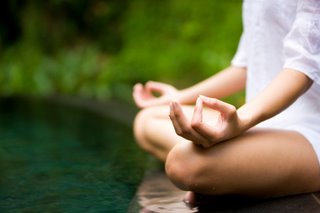 Zen Clocks awakened you more gradually and thus more naturally Now & Zen Headquarter Store
1638 Pearl Street
Boulder, CO 80302
(800) 779-6383
Posted in Chime Alarm Clocks
 Gong Timer - Boost Your Short-Term Memory - Utagawa Toyokuni Ukiyo-e Woodblock A certain type of meditation may help the brain retain images for short periods, says a new study on visual-spatial abilities.
When people view an object, they usually retain a clear picture of it in their visual short-term memory for only a few seconds before the details fade. An experiment by George Mason University researchers, though, found that people who practice Deity Yoga (DY) do much better at visual-spatial tasks shortly after they meditate.
The study’s authors, writing in a recent issue of Psychological Science, said the finding may have “many implications for therapy, treatment of memory loss and mental training.”
Practitioners of DY meditation zero in on an image of their deity, conjuring up a vivid, three-dimensional mental picture of it while honing in on the deity’s emotions and environment.
In the experiment, led by psychologist Maria Kozhevnikov, meditation and non-meditation practitioners performed two visual-spatial tests: imagining the rotation of a 3-D object and viewing an image, then trying to identify it from among several other similar images. After a first round of tests, the participants spent the next 20 minutes either meditating or performing non-meditative tasks before being tested again.
All the subjects had similar scores on the first round of tests, suggesting that meditating in general causes no overall, long-term improvement in visual-spatial skills.
However, those who performed DY meditation between rounds did much better on both tasks in the second phase of tests than those who did non-meditative activities or practiced Open Presence (OP) meditation. OP practitioners, rather than focusing on a specific thing, try to achieve awareness by contemplating a wider array of experiences, images or thoughts that may come to them.
 Gong Timer Can Help Boost Your Short-Term Memory if You Use it to Meditate The study authors concluded that further investigations should be done to see if other visual meditation techniques can produce similar improvements in visual-spatial memory or if the results are specific to DY meditation.
More information
The National Center for Complementary and Alternative Medicine has more about the health benefits of meditation.
SOURCE: Association for Psychological Science, news release, April 27, 2009
“Mindfulness” is the spiritual practice of being aware of your present moment. World famous Zen monk Thich Nhat Hanh has developed the use of a bowl-gong in a practice he calls the “mindfulness bell.” When you hear the sound of the mindfulness bell, you are invited to take a moment to breathe in and out and center yourself in the present. This practice allows the sound of the bowl-gong to periodically connect you to the peace and tranquility that resides inside you right now. This delightful practice reduces stress and improves your overall health.
Our Zen Timepiece’s acoustic 6-inch brass bowl-gong clock is the world’s ultimate alarm clock, practice timer, and “mindfulness bell.”
It fills your environment with beautifully complex tones whenever it strikes. In the morning, its exquisite sounds summon your consciousness into awakening with a series of subtle gongs that provide an elegant beginning to your day. Once you experience the Zen Timepiece’s progressive awakening, you’ll never want to wake up any other way. It also serves as the perfect meditation timer. Available in 5 wood styles, including bamboo (shown).
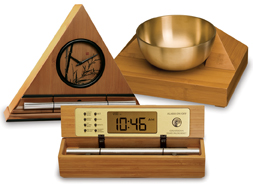 Gong Timers from Now & Zen - Boulder, Colorado Now & Zen – The Gong Timer Store
Downtown Boulder
1638 Pearl Street
Boulder, CO 80302
(800) 779-6383
Posted in Zen Clocks and Dream Recall, Zen Timers
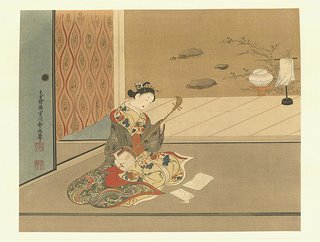 Set Your Gong Meditation Timer - Dama tocando el Samisem -artista Shunsui Katsu-Miyagawa A certain type of meditation may help the brain retain images for short periods, says a new study on visual-spatial abilities.
When people view an object, they usually retain a clear picture of it in their visual short-term memory for only a few seconds before the details fade. An experiment by George Mason University researchers, though, found that people who practice Deity Yoga (DY) do much better at visual-spatial tasks shortly after they meditate.
The study’s authors, writing in a recent issue of Psychological Science, said the finding may have “many implications for therapy, treatment of memory loss and mental training.”
Practitioners of DY meditation zero in on an image of their deity, conjuring up a vivid, three-dimensional mental picture of it while honing in on the deity’s emotions and environment.
In the experiment, led by psychologist Maria Kozhevnikov, meditation and non-meditation practitioners performed two visual-spatial tests: imagining the rotation of a 3-D object and viewing an image, then trying to identify it from among several other similar images. After a first round of tests, the participants spent the next 20 minutes either meditating or performing non-meditative tasks before being tested again.
All the subjects had similar scores on the first round of tests, suggesting that meditating in general causes no overall, long-term improvement in visual-spatial skills.
However, those who performed DY meditation between rounds did much better on both tasks in the second phase of tests than those who did non-meditative activities or practiced Open Presence (OP) meditation. OP practitioners, rather than focusing on a specific thing, try to achieve awareness by contemplating a wider array of experiences, images or thoughts that may come to them.
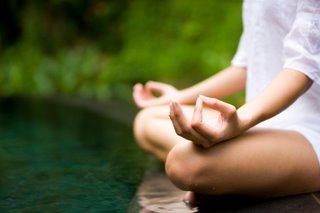 Choose a Gong Meditation Timer for Your Mindfulness Practice The study authors concluded that further investigations should be done to see if other visual meditation techniques can produce similar improvements in visual-spatial memory or if the results are specific to DY meditation.
Use our unique “Zen Clock” which functions as a Yoga & Meditation Timer. It features a long-resonating acoustic chime that brings your meditation or yoga session to a gradual close, preserving the environment of stillness while also acting as an effective time signal.
Our Yoga Timer & Clock can be programmed to chime at the end of the meditation or yoga session or periodically throughout the session as a kind of sonic yantra. The beauty and functionality of the Zen Clock/Timer makes it a meditation tool that can actually help you “make time” for meditation in your life. Bring yourself back to balance.
More information
The National Center for Complementary and Alternative Medicine has more about the health benefits of meditation.
SOURCE: Association for Psychological Science, news release, April 27, 2009
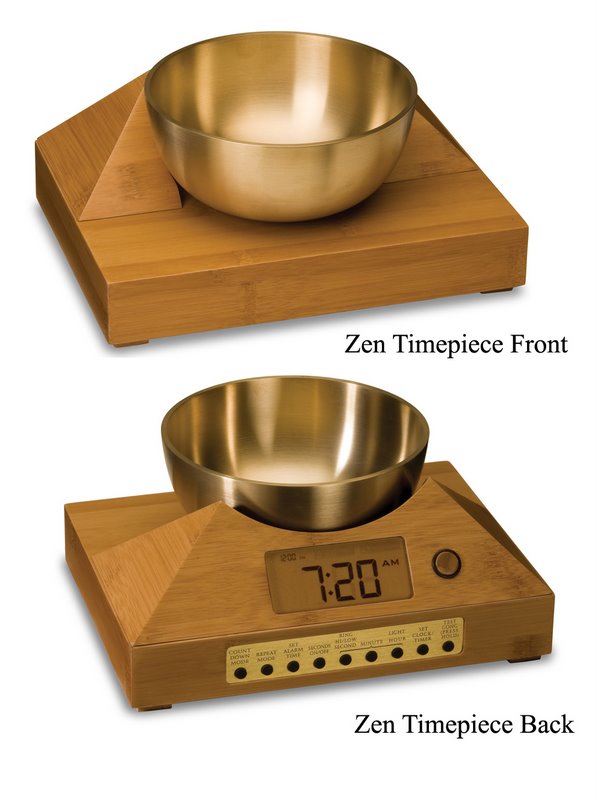 Set Your Gong Meditation Timer for Your Mindfulness Practice Now & Zen – The Gong Meditation Timer
 The Gong Meditation Store - Boulder, CO 1638 Pearl Street
Boulder, CO 80302
(800) 779-6383
orders@now-zen.com
Posted in Well-being, Yoga Timers by Now & Zen, Zen Timepiece by Now & Zen, Zen Timers
« Previous Page — « Previous Entries
Next Entries » — Next Page »
|
|
|
|